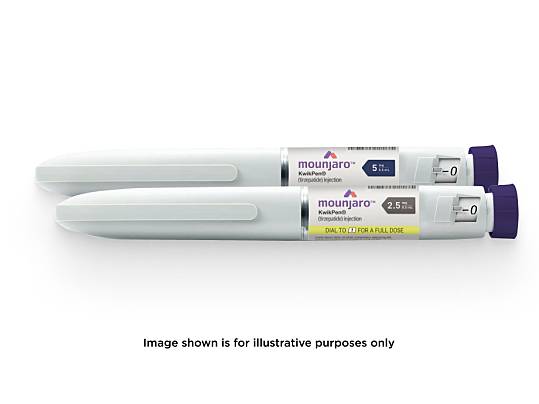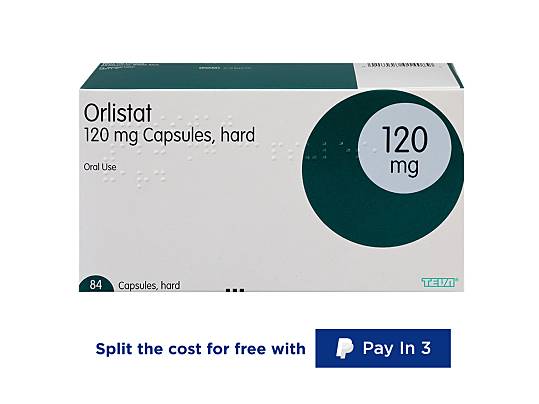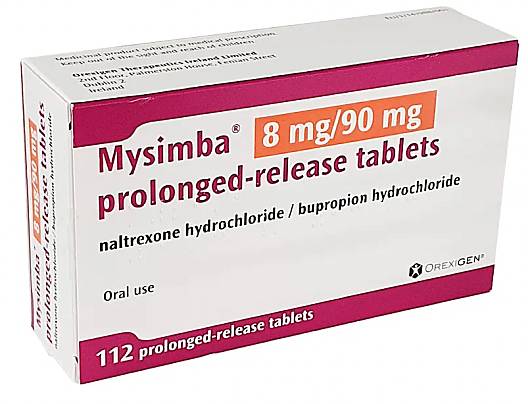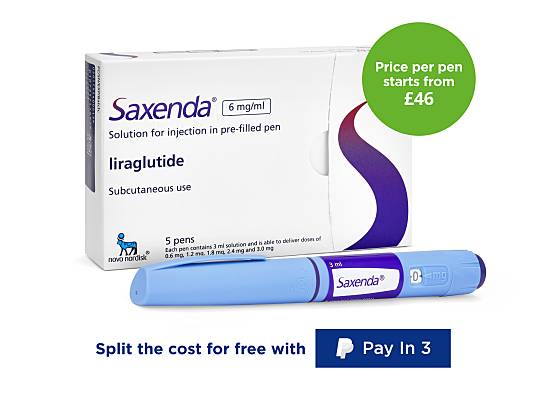Weight Loss Treatments
With Asda Online Doctor, you get more than just weight loss medication. Start or continue your weight loss journey and get prescription weight loss treatment, including weight loss injections and tablets, plus free ongoing doctor care and guidance.
Prices from £39.99
One of our doctors will review your order and prescribe a treatment if suitable. How to Order
Benefits of using our online weight loss service:
- You’ll receive a free weight loss support pack developed by our in-house nutritionist and our doctors to give you the best chance of success
- You can message a doctor for advice and support for free in your private online account
- Weight loss injections come with free needles. Sharps bins are available upon request.
- Once you’ve been issued a prescription, treatment is delivered discreetly to an address of your choice
- Quick and easy repeat prescriptions without waiting in line at a pharmacy
Already using Asda’s weight loss service?
We’ve got a list of frequently asked questions about our service for you to check in case you need any extra guidance:
Weight loss treatments
In stock. Prices from £169.00
In stock. Prices from £179.00
In stock. Prices from £44.00
In stock. Prices from £39.99
In stock. Prices from £52.00
Out of stock. Prices from £99.00
Out of stock. Prices from £55.00
Out of stock. Prices from £0.00

No results found.
Please check your spelling or try another treatment name.




Weight loss treatment
-
-
There are a range of different weight loss treatments available that can help you reach your desired weight. Whether you take weight loss injections or tablets, you’ll need to follow a diet and exercise plan to get the best results. Read on to learn more about the different types of weight loss medication available from ASDA Online Doctor to help you find the best treatment for you.
-
-
Weight loss medication is split into 2 categories: weight loss injections and weight loss tablets. The weight loss injections currently licensed for use in the UK are:
The weight loss tablets licensed for use in the UK are:
You can start weight loss medication if you meet the criteria for taking it. This usually involves having a certain body mass index (BMI) or weight-related health conditions, but each type of weight loss medication has different criteria. Most medications require a prescription, except alli which you can get over the counter, although a pharmacist or doctor still needs to check your suitability. When you take weight loss medications, you should commit to a low-calorie diet and regular exercise.
To support you on your journey, our doctors and in-house nutritionist will provide you with extensive information and advice on how to take your medication, the best diet to speed up weight loss and avoid side effects, and how to establish a regular exercise routine. If you need any help or have questions, our doctors are available through your patient account whenever you need them.
-
-
Weight loss injections can reduce your appetite and make you feel fuller between meals. This is because they work on the parts of your brain responsible for hunger and appetite control. Wegovy and Mounjaro are taken once a week, while Saxenda is taken daily.
You can get weight loss injections through our service if you have a BMI of:
- 30 or above
- between 27 to 30 with a weight-related medical problem or risk factor, such as high blood pressure or sleep apnoea
Always be honest and accurate with your doctor. This is important because weight loss medication could cause serious illness and severe side effects if it is not suitable for you.
Wegovy (semaglutide)
Wegovy is an injection containing the active ingredient semaglutide, a glucagon-like-peptide-1 (GLP1) receptor agonist.
How does it work?
Wegovy works the same way as GLP-1 in your body, which is a hormone produced in our intestines after eating. This hormone sends signals to your brain, making you feel satisfied and full after a meal. It also stimulates the release of insulin, a blood sugar lowering hormone.
How to take it?
Wegovy is injected under the skin once a week. It comes as pre-filled doses, starting at 0.25mg. You’ll gradually increase your dose during the first 17 weeks of treatment to allow your body to get used to the medication. Once you reach the maintenance dose of 2.4mg, you’ll stay on this until the end of your treatment.
How effective is it?
Wegovy can help people lose up to 15% of their weight on the maintenance dose after 68 weeks.
Originally, semaglutide was used to treat type 2 diabetes under the name Ozempic, but doctors discovered that it was also an effective weight loss treatment. Wegovy contains semaglutide at a different dose, so it is only used to support weight loss. You can find out more about the differences between Mounjaro, Wegovy, and Ozempic in our comparison guide. ASDA Online Doctor doesn’t recommend taking type 2 diabetes medications for weight loss.
Mounjaro (Tirzepatide)
Mounjaro is another weight loss injection that works similarly to Wegovy. It’s used to treat both type 2 diabetes and obesity and contains the active ingredient tirzepatide.
How does it work?
Tirzepatide is a dual agonist, which means it mimics GLP-1 and glucose-dependent insulinotropic polypeptide (GIP), another hormone which our bodies produce after eating. Just like semaglutide, this hormone reduces appetite and helps you lose weight by making you feel fuller while eating less. Because Mounjaro and Wegovy contain different active ingredients, you may find one gives you fewer side effects than the other.
How to take it?
Mounjaro is injected into your abdomen or upper thigh once per week. You’ll follow a Mounjaro dosage schedule, starting from a dose of 2.5 mg per week. This can be gradually increased, usually every 4 weeks, to a maximum maintenance dose of 15 mg per week.
How effective is it?
Mounjaro has been proven to be an effective weight loss treatment in clinical trials. After 72 weeks on the highest maintenance dose (15mg) people lost up to 22.5% of their starting weight.
Saxenda (Liraglutide)
Saxenda is another weight loss injection, but it contains the active ingredient liraglutide.
How does it work?
Saxenda reduces appetite and makes you feel fuller by mimicking the hormone GLP-1.
How to take it?
Saxenda needs to be injected once per day. This is because Liraglutide breaks down in the body much faster than semaglutide or tirzepatide. Saxenda also follows a dosage schedule, which is increased over the first 5 weeks of treatment to a maintenance dose of 3 mg once per day.
How effective is it?
Saxenda has been found to help people lose an average of 8% of their starting weight after taking the maintenance dose for 56 weeks, compared to 2.6% for patients taking a placebo.
Saxenda is currently out of stock and is expected to be for the long-term. Mounjaro and Wegovy can be prescribed as alternatives. If you’re currently taking Saxenda, you can switch to Wegovy with the help of a doctor.
-
-

If you’re not sure which weight loss injection is best for you, we’ve created a comparison table with the 3 most common treatments. You can also discuss your suitability for each treatment with one of our doctors.
-
-
The most common weight loss tablets available in the UK are orlistat-based treatments and Mysimba. Treatments containing orlistat as the active ingredient change how your body absorbs fats from meals. Mysimba affects the parts of your brain responsible for appetite, making you fuller from less food. You take weight loss tablets every day.
Generic Orlistat
Orlistat is a fat enzyme blocker. It’s an unbranded medication containing the active ingredient orlistat.
How does it work?
When you eat foods containing fat, enzymes in your gut break down the fat so that your body can absorb them. Orlistat blocks these enzymes from breaking down fat, which means your body will not be able to absorb as much of it. The fat will then pass out of your system when you go to the toilet. This means you absorb less fat, which leads to more weight loss.
How to take it?
You can take one 120mg orlistat tablet up to 3 times a day. You should take this either with or within 1 hour of a meal containing fat.
How effective is it?
In clinical trials, orlistat was found to help 37% of people lose 5% or more of their body weight after 12 weeks. 49% of these patients went on to lose 10% or more of their weight after a year of treatment.
Who can take it?
You can be prescribed orlistat from ASDA Online Doctor if your BMI is:
- above 30
- 28 or more, and you have a weight related condition (such as type 2 diabetes) or risk factor
Xenical
Xenical contains the fat enzyme blocker, orlistat.
How does it work?
It works the same way as generic orlistat, the only difference is that Xenical is a branded treatment made by a different manufacturer. Taking it with meals containing fat prevents around a third of the fat from your meal being absorbed.
How to take it?
You take one Xenical capsule up to 3 times a day, only with meals containing fat.
How effective is it?
In clinical trials, Xenical was found to help 37% of people lose 5% or more of their body weight after 12 weeks. Of these patients, 49% went on to lose 10% or more after 1 year of treatment.
Who can take it?
ASDA Online Doctor can prescribe Xenical if you have a BMI over:
- 30
- 28 with a weight related health condition or risk factor, such as prediabetes
Mysimba
Mysimba contains a combination of two active ingredients: naltrexone (8mg) and bupropion (90mg).
How does it work?
Naltrexone and bupropion affect the parts of your brain responsible for appetite and cravings. This reduces feelings of hunger and food cravings, making it easier to reduce your calorie intake without feeling hungry.
How to take it?
Mysimba is taken every day and follows a dosage schedule until you reach the maintenance dose: 2 tablets twice a day.
How effective is it?
In clinical trials, Mysimba has been proven to help people lose an average of 8.1% after 56 weeks of treatment.
Who can take it?
ASDA Online Doctor can prescribe Mysimba if you have a BMI of:
- 30 or more
- 27 or more, with a weight-related health condition or risk factor
-
-

The right weight loss medication for you depends on your medical history, BMI, and whether you’d prefer a tablet or injection. Below are the different weight loss medications available at Asda Online Doctor, so you can compare each.
-
-
Each weight loss medication is effective in its own right, which is why they’ve been approved for use in the UK. Each has been tested in clinical trials, although these often differ in how many patients were tested and at how many weeks. Below we look at the different clinical trials for each weight loss medication so you can get a better idea of how much weight you might lose. Remember, any weight loss medication is most effective when you follow a diet and exercise plan.
Weight loss medication Effectiveness in clinical studies Mounjaro
People lost up to 22.5% of their starting weight on the 15 mg maintenance dose after 72 weeks
Wegovy
People lost up to 15% of their starting weight on the maintenance dose after 68 weeks
Saxenda
People lost an average of 8% of their starting weight on the maintenance dose after 56 weeks
Orlistat
Found to help 37% of people lose 5% or more of their starting weight after 12 weeks
Xenical
Found to help 37% of people lose 5% or more of their starting weight after 12 weeks
Alli
Found to help 46.7% of people lose 5% or more of their starting weight after 6 months
Mysimba
People lost an average of 8.1% of their starting weight after 56 weeks of treatment
-
-
Alli is a weight loss treatment available over the counter, as it contains half the amount of orlistat in Xenical and orlistat generic tablets. Alli is the brand name for over the counter orlistat. A pharmacist or doctor will discuss with you whether Alli is a suitable treatment before you can buy it.
Each Alli capsule contains 60mg of orlistat, whereas prescription-strength Xenical contains 120mg of orlistat. We can prescribe Alli if you have a BMI of 28 or above. You take 1 capsule of Alli with a meal containing fat, up to 3 times a day, and for no longer than 6 months.
You should take a daily multivitamin while taking Alli. If you take Alli for 6 months and want to continue taking it, you need to see a doctor for their advice first.
-
-
You may experience some side effects when you take weight loss treatment tablets or injections.
Side effects from medications can vary depending on the treatment. Some common side effects of weight loss treatment may include:
- abdominal pain
- diarrhoea or constipation
- headache
- feeling sick or being sick
- taste changes
- feeling tired
Losing a lot of weight in a short time can have effects on your body too. When you lose weight, you might notice parts of your skin sagging where you have lost the weight. You may also have stretch marks, which are lines that can come up on your skin when your skin stretches and shrinks rapidly.
If you are female, your period can change. Being overweight might lead to irregular or missed periods, but your periods might also become more irregular when you are losing weight. When you reach a stable weight from weight loss treatment, you might notice that your periods become more regular.
Diet
Making changes to your diet is an effective way to lose weight, especially as you reduce your calorie intake. Calories are the amount of energy stored in food and drinks. If you take in more calories in a day than you use, the extra calories are stored as fat.
As a general guideline, men need around 2,500 calories a day and women need around 2,000. The amount of calories that you need will depend on the amount of activity that you do. To lose weight in a safe and manageable way, the NHS recommended following a balanced diet and reducing your calorie intake by 600 calories a day.
To find information about the number of calories in certain foods, you can check the nutrition content on the package.
Physical Activity
Exercise is a great way to burn calories, improve your overall health, and increase your metabolism. You should try to do about 30 minutes a day of exercise that helps get your heart rate up, like walking, swimming or riding a bicycle. If you’d rather go for more intense forms of exercise, aim for at least 75 minutes per week. Intense exercise includes going for a run, lifting heavy weights, football, basketball or boxing.
Regular physical activity can protect you against conditions like type 2 diabetes and high blood pressure. Exercise will also improve your mood and will go a long way towards managing your mental health. Your sleep will improve and you’ll have more energy to enjoy life.
Weight loss surgery
Weight loss treatment in the UK includes the option of having weight loss surgery, known as bariatric surgery. Weight loss surgery is only appropriate if you have tried to lose weight with dieting and exercise, or if you are unable to use weight loss medication. Your doctor may discuss with you whether weight loss surgery is suitable if:
- you have tried dieting and increased exercise
- your BMI is over 40, or between 35 and 40 with a weight-related condition, such as diabetes
After weight loss surgery, you’ll need to commit to long term follow up appointments with the place you had your surgery. Weight loss surgery is a type of major surgery. You should be comfortable with making large lifestyle changes to make sure the effects of the surgery are successful. You’ll also need to take lifelong vitamin supplements as you’ll be eating less food and will be at risk of nutritional deficiencies.
There are a few different ways surgery can help you lose weight:
- gastric bypass – where the top of your stomach is connected to your small intestine to reduce how much food you can eat
- gastric band – a band is placed around your stomach to help you eat less as it makes your stomach smaller
- sleeve gastrectomy – part of your stomach is removed so you feel full much quicker and eat less overall
Each type of surgery will have its benefits and potential complications. If you decide to go for weight loss surgery, your surgeon will discuss with you the risks and benefits to help you come to an informed decision.
-
Frequently asked questions
Who is eligible for weight loss medication?
To be eligible for weight loss medication, you usually need to have a certain BMI. This is normally defined as a BMIover 30, or between 27 and 30 with a weight related medical condition or risk factor. You’ll also need to be over 18. Each weight loss medication has its own set of prescribing criteria. A doctor will check your medical history and current medications to make sure your chosen weight loss medication is suitable. If you request a treatment through our service, our doctors will prescribe the treatment if you’re eligible. If you’re not, they can discuss alternatives that work in a similar way.
How do weight loss injections work?
Weight loss injections work by mimicking hormones in your body responsible for hunger. GLP-1 (Wegovy, Mounjaro, and Saxena) and GIP (Mounjaro) send signals to your brain when you eat that trick your brain into thinking you’re full, even after eating less. They also delay the emptying of your stomach, making you feel fuller for longer.
When people follow a diet and exercise plan, they often find it difficult to reduce their calorie intake or snack less because they still feel hungry. As weight loss injections reduce hunger, it’s easier to lose weight.
How do weight loss tablets work?
This depends on the weight loss tablet. Orlistat tablets (Xenical, orlistat generic tablets, and Alli) reduce the amount of fat you absorb from your meals by around a third. This helps you to lose weight as you’re consuming less fat.
Mysimba affects the parts of your brain responsible for appetite, cravings, and energy. Scientists aren’t exactly sure how it works, but it can reduce hunger and prevent cravings while following a diet plan.
What weight loss treatment is best for me?
Which weight loss treatment is best for you depends on lots of things, such as personal preference, your BMI, medical history, current medications, and whether you’d rather take an injection or tablet. If you’re still not sure after reading through this page, you can speak to one of our doctors for more advice.

Babak studied medicine at King’s College London and graduated in 2003, having also gained a bachelor’s degree in Physiology during his time there. He completed his general practice (GP) training in East London, where he worked for a number of years as a partner at a large inner-city GP practice. He completed the Royal College of GPs membership exam in 2007.
Meet our doctorsLast reviewed: 18 Apr 2024
-
Obesity (NHS) [Feb 2023] [accessed March 2024]
-
Understanding calories (NHS) [April 2023] [accessed March 2024]
-
Exercise (NHS) [accessed March 2024]
-
Weight loss surgery (NHS) [accessed March 2024]
-
Xenical 120mg hard capsules (SmPC) [Oct 2023] [accessed March 2024]
Order weight loss treatment


GMC: 7074021

GMC: 6149061

GMC: 7085115


- What foods to avoid when taking Saxenda
- How long does a Saxenda pen last?
- Saxenda Information Hub
- Why am I not losing weight on Saxenda?
- How to get the best results from Orlistat
- Wegovy vs Saxenda
- Switching from Saxenda to Wegovy
- Ozempic for weight loss
- Ozempic vs Saxenda
- Wegovy Dosage
- Tirzepatide
- Wegovy vs Mounjaro vs Ozempic















